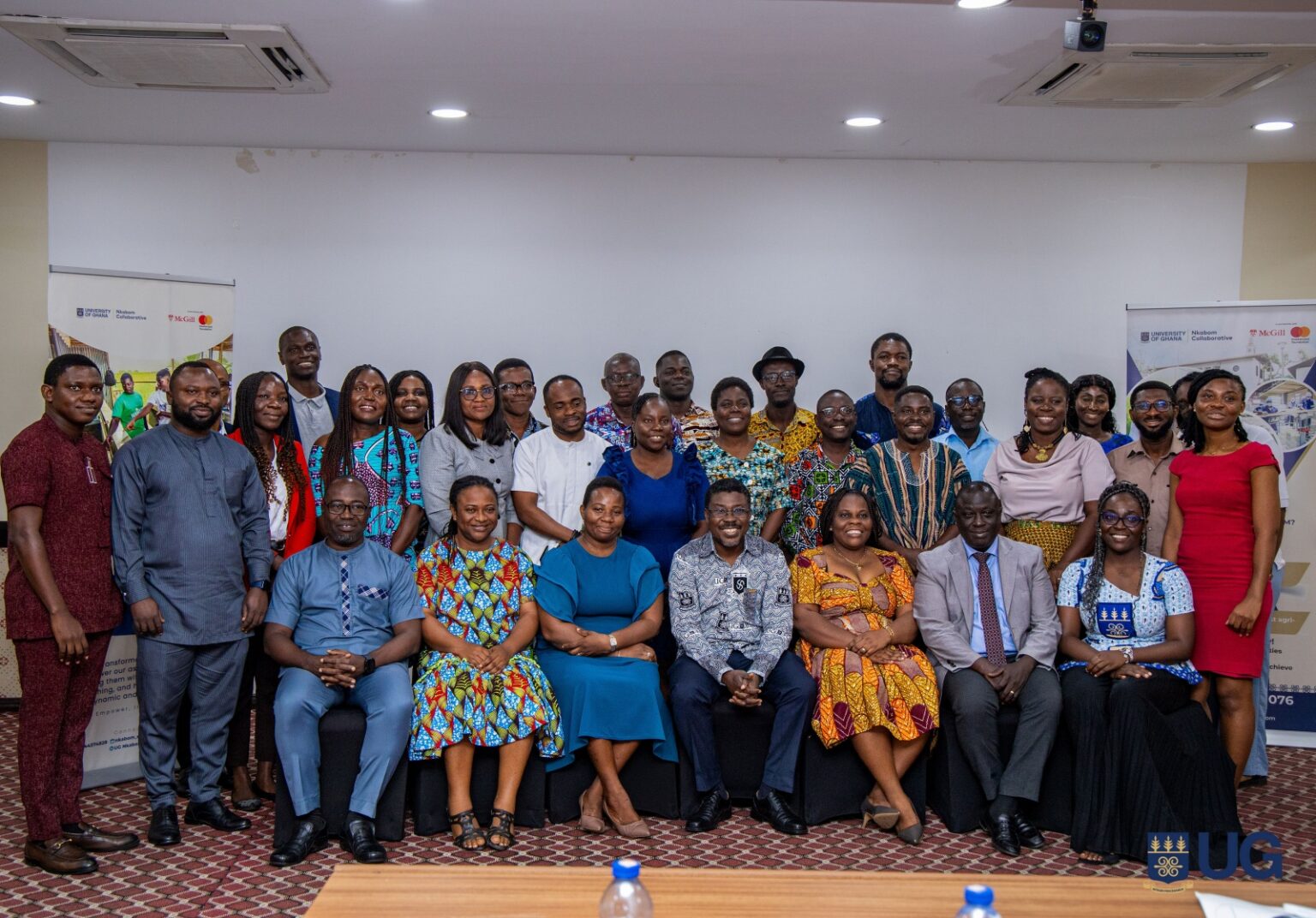Across many fronts, fresh debates on agrifood systems are gaining momentum, driven by what experts say is the need to rethink regulation, spur innovation and recognise the role of food in sustaining livelihoods and economies.
That conversation took centre stage at a recent one-day policy dialogue convened by the UG Nkabom Collaborative to bridge gaps between regulators and agrifood entrepreneurs. The gathering sought to tackle systemic challenges that frustrate innovation while unlocking opportunities for young people in Ghana’s food systems.
Held under the theme “Policy in Practice: Southern Belt Stakeholder Dialogue on Agrifood Regulation and Youth Enterprises”, the event drew participants from academia, regulatory agencies, private sector players and youth-led businesses across the Greater Accra, Central, Western, Western North, Eastern, Volta and Oti regions.
Among the institutions represented were the Environmental Protection Agency (EPA), Food and Drugs Authority (FDA), Ghana Standards Authority (GSA), Ghana Revenue Authority (GRA), Social Security and National Insurance Trust (SSNIT), Ministry of Food and Agriculture (MoFA), Ghana Enterprises Agency (GEA) and the Office of the Registrar of Companies (ORC).
What united them was a shared concern about how to make Ghana’s food systems safer, more sustainable and fertile ground for youth enterprise and job creation.
In setting the tone for the policy dialogue on behalf of Principal Investigator Prof. Richmond Aryeetey, Dr. Hayford Ayerakwa, Pillar Lead for Education on the UG Nkabom Collaborative, provided an overview of the initiative and its three-pronged focus areas, including Education, Access and Success, and Entrepreneurship. He explained that through the Education Pillar, the Collaborative promotes experiential learning opportunities for young people, anchored in climate-smart, indigenous and nutrition-rich agrifood practices.
The Access and Success Pillar, he noted, seeks to open up higher education training in nutrition and agrifood systems to women, persons with disabilities and other underrepresented groups, while the Entrepreneurship Pillar equips young people with the knowledge, skills and networks to build and scale sustainable agrifood businesses.
Dr. Ayerakwa stressed that food systems must be understood in broader terms and urged stakeholders to rethink agriculture as a value chain that begins long before seeds are sown and extends well beyond the dining table. “Agricultural production should not be limited to food for consumption,” he said. “We need to consider pre-production, production and post-production stages and the opportunities each presents for entrepreneurs and investors. The value chain has multiple points of entry and we must ensure that women, young people, persons with disabilities and other vulnerable groups can access the support needed to leverage these opportunities.”
Building on this vision, the Collaborative has set out a decade-long plan to empower young people with the skills and resources to transform raw ideas into viable agribusinesses. One example of this effort is the Nkabom Bootcamp, which is nurturing agrifood startups with the potential to scale up. Ms. Sylvia Nyarko, Project Assistant at UG Nkabom and Programmes Lead at the University of Ghana Business School’s Entrepreneurship Hub (UGBS NEST), during the session revealed that from over 160 applicants, 100 participants have already been selected.
“We are now at the idea development stage, after which the top 50 and then 20 will be chosen for targeted support to refine and scale their concepts,” Ms. Nyarko explained. The goal, she added, is ambitious and is geared towards creating more than 9,000 direct jobs and widening opportunities for young people across the country.
A key concern for stakeholders, revealed during a presentation by Prof. Justice Bawole, Policy Lead with the Collaborative, was the thorny issue of regulation faced by young agrifood entrepreneurs.
Drawing on research with startups under the Collaborative, he outlined a host of challenges, ranging from licensing and certification processes that stretch over months, conflicting requirements between agencies such as the FDA and GSA and separate compliance demands from MoFA and the EPA that duplicate efforts and slow progress.
He added that “these hurdles are further compounded by high compliance costs, multiple layers of taxation, and inconsistent enforcement. In some cases, companies face strict monitoring, while others bypass regulations through political connections or unofficial payments, creating an uneven playing field and eroding trust in the system.”
Prof. Bawole noted that early education on legal frameworks and regulatory processes could help entrepreneurs avoid costly mistakes and delays. He, however, stressed that lasting change would require regulators to harmonise standards, streamline processes and work more closely with industry players to build a food systems sector that genuinely supports youth-led enterprises and job creation.
Responding to the concerns, Ing. Rachel Amanfu, Chief Scientific Officer at the Ghana Standards Authority, admitted the issues surrounding fragmented regulatory processes but noted that agencies are now working to address them. She explained that many of the challenges entrepreneurs face stem from limited knowledge of the right procedures, which often results in wrong labelling, incomplete product standards and delays in certification.
She further revealed that steps are underway to harmonise services across the GSA, FDA and ORC so that, in the near future, a single application could serve multiple agencies, an initiative aimed at easing the burden on startups and improving efficiency.
The dialogue opened the door to a broad consensus that Ghana’s food systems can no longer operate in silos and as such, regulators, entrepreneurs and academics must work together to ensure that policies encourage rather than stifle innovation.
The UG Nkabom Collaborative, housed at the University of Ghana, is positioning itself at the heart of that effort by leveraging research, training, dialogue and partnerships to make food systems more inclusive, resilient and youth-driven.
Progress is already evident in the form of strengthened linkages between innovators and regulators and in new opportunities being created for young entrepreneurs within the agrifood sector. The next steps would involve how to sustain these gains by ensuring policies are reformed and consistently applied by building structures that outlast individual projects or programmes.
With steady commitment and continuity, the Collaborative has the potential to reshape Ghana’s food landscape, moving it beyond nourishment to become a platform for innovation, decent work and sustainable growth.

